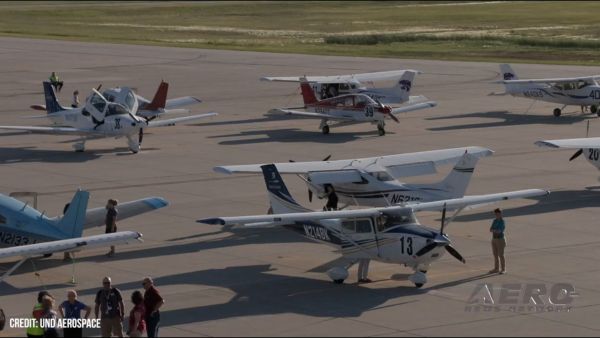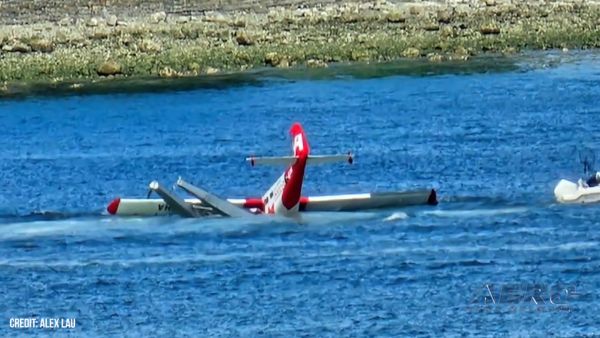Sun, Jul 14, 2019
Will Receive Their Awards Later This Year At A Ceremony In Washington, D.C.
President Trump has named 18 NASA researchers as recipients of the Presidential Early Career Award for Scientists and Engineers (PECASE). These recipients, and 296 other federal researchers, will receive their awards later this year at a ceremony in Washington.

The PECASE Award is the highest honor given by the U.S. government to scientists and engineers who are beginning their research careers. The award recognizes recipients' potential to advance the frontiers of scientific knowledge and their commitment to community service, as demonstrated through professional leadership, education or community outreach.
"These PECASE winners represent some of the brightest early career researchers that NASA supports," said James Green, NASA chief scientist. "They were selected for what they have already accomplished, but more importantly, we expect they will reach even higher goals in the future. They are shining stars."
The following 2019 NASA recipients were nominated by the agency's Science, Human Exploration and Operations, Space Technology, and Aeronautics Research mission directorates, Office of the Chief Engineer, and Office of the Chief Technologist:
- Giada Arney, NASA's Goddard Space Flight Center, Greenbelt, Maryland – for far-reaching influence in predicting, observing, and communicating about habitability and the potential for life beyond Earth
- Laura Barge, NASA's Jet Propulsion Laboratory (JPL), Pasadena, California – for innovative fuel-cell based research
- Jennifer Barilla, Arizona State University, Tempe – for advancing understanding of infectious disease with innovated space-based investigations
- Mark Blenner – Clemson University, Clemson, South Carolina – for pioneering use of synthetic biology
- Lynn Carter, University of Arizona, Tucson – for innovative radar polarimetry and remote sensing
- Shawn Domagal-Goldman, Goddard – for physical models of exoplanets
- Erika Hamden, California Institute of Technology, Pasadena – for innovative leadership in studies of the universe
- Rebecca Kramer, Purdue University, West Lafayette, Indiana – for groundbreaking research on adaptive robots and embedded intelligence
- Gioia Massa, NASA's Kennedy Space Center, Florida – for food cultivation for the International Space Station
- Richard Moore, NASA's Langley Research Center, Hampton, Virginia – for innovative contributions to aerosol-cloud-climate interactions
- Evan Pineda, NASA's Glenn Research Center, Cleveland – for state-of-the-art, multiscale failure analysis code
- John Reager, JPL – for analysis of terrestrial global water cycles
- Jonathan Sauder, JPL – for demonstrating innovative technologies to enable a new class of space missions
- Yolanda Shea, Langley – for pioneering shortwave spectral measurements
- David Smith, NASA's Ames Research Center, Moffett Field, California – for excellence in microbial research in the stratosphere and on the International Space Station
- Kelly Stephani, University of Illinois Urbana-Champaign – for contributions in fundamental high-temperature aerodynamics
- Jennifer Stern, Goddard – for Mars habitability and life detection
- Abigail Vieregg, University of Chicago – for inventing and implementing innovative techniques in neutrino astronomy
The PECASE awards were created to highlight the importance of science and technology for America's future. These early career awards foster innovative developments in science and technology, increase awareness of careers in science and engineering, provide recognition to the scientific missions of participating agencies, and enhance connections between research and challenges facing the nation.
(Source: NASA news release)
More News
An Amazing Experience Awaits The Chosen Few... Oshkosh, to us, seems the perfect place to get started on watching aviation recover the past couple of years... and so ANN is putting>[...]
“NBAA has a tremendous responsibility to the business aviation industry, and we are constantly collaborating with them. Our flight departments, professionals and aircraft own>[...]
Dead Reckoning Dead reckoning, as applied to flying, is the navigation of an airplane solely by means of computations based on airspeed, course, heading, wind direction, and speed,>[...]
Aero Linx: Vertical Aviation Safety Team (VAST) We are a public–private initiative to enhance worldwide flight operations safety in all segments of the vertical flight indust>[...]
We're Everywhere... Thanks To You! Even with the vast resources and incredibly far-reaching scope of the Aero-News Network, every now and then a story that should be reported on sl>[...]
 ANNouncement: Now Accepting Applications For Oshkosh 2024 Stringers!!!
ANNouncement: Now Accepting Applications For Oshkosh 2024 Stringers!!! Aero-News: Quote of the Day (06.13.24)
Aero-News: Quote of the Day (06.13.24) ANN's Daily Aero-Term (06.13.24): Dead Reckoning
ANN's Daily Aero-Term (06.13.24): Dead Reckoning ANN's Daily Aero-Linx (06.13.24)
ANN's Daily Aero-Linx (06.13.24) ANN FAQ: How Do I Become A News Spy?
ANN FAQ: How Do I Become A News Spy?



